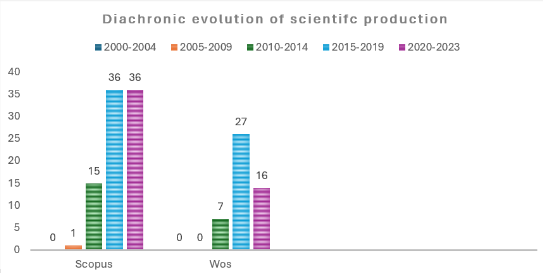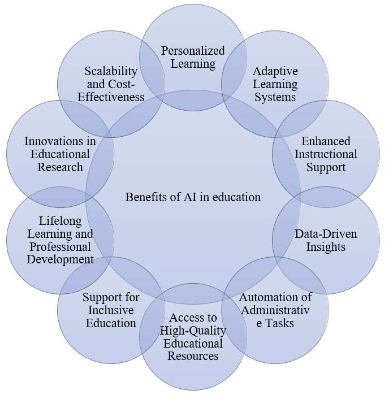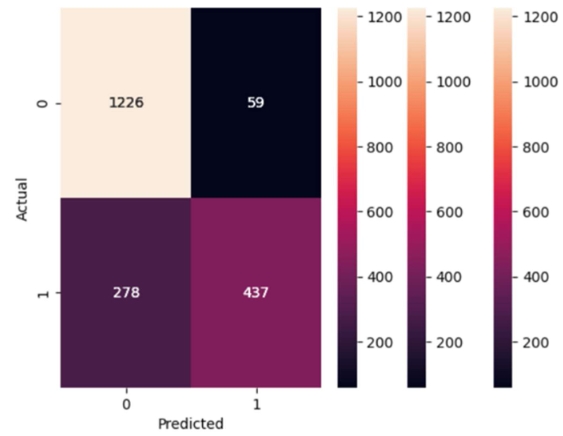Open educational practices and virtual learning readiness among B.Ed. trainees
Abstract
In recent time, Bachelor of Education (B.Ed.) trainees have increasingly adopted technology-oriented learning to enhance their classroom teaching and learning experiences. These trainees are also creating various learning environment, such as self-directed learning, group learning, and other activities with the digital tools. This study examined the integration of Open Educational Practices (OEP) and Virtual Learning Readiness (VLR) among B.Ed. trainees across different districts in Uttar Pradesh, India. With the growing dependence on technology, these trainees are utilizing digital resources like mobile learning applications, Zoom, Google Meet, Google Classroom freckle and digital whiteboards to improve their classroom engagement. The research, which included 960 B.Ed. trainees, employed standardized tools to evaluate their levels of Open Educational Practices (OEP) and Virtual Learning Readiness (VLR). The findings indicated that the trainees exhibited a moderate level of both variables, with notable variations based on certain background factors. A statistical analysis has done, which included percentage, descriptive, differential, and relational methods to analyze the collected data critically. However, the main challenges include limited time to locate suitable resources, insufficient awareness regarding quality assurance, technological constraints. The study suggests that targeted booster programs should be organized to enrich trainees’ technological skills, enabling them to excel in future classroom teaching and learning. The study’s outcomes are expected to significantly contribute to the improvement of the emerging learning society.
References
[1]Hashim H. Application of Technology in the Digital Era Education. International Journal of Research in Counseling and Education. 2018; 1(2): 1. doi: 10.24036/002za0002
[2]Adil HM, Ali S, Sultan M, et al. Open education resources’ benefits and challenges in the academic world: a systematic review. Global Knowledge, Memory and Communication. 2022; 73(3): 274–291. doi: 10.1108/gkmc-02-2022-0049
[3]Llanda SMD. Factors Influencing the Faculty’s Use of Open Educational Resources (OER). British Journal of Multidisciplinary and Advanced Studies. 2023; 4(4): 1–11. doi: 10.37745/bjmas.2022.0237
[4]Datt G, Sharma A, & Singh R. Barriers to the Adoption of Open Educational Resources in the Context of Indian Higher Education. Asian Journal of Distance Education. 2021; 16(2), 45–58. https://doi.org/10.5281/zenodo.5507890
[5]Sushil C. E learning readiness of primary school teachers of Uttarakhand in relation to their technostress locus of control and teacher effectiveness [PhD thesis]. Punjab University; 2023
[6]Purnomo EN, Imron A, Wiyono BB, et al. Transformation of Digital-Based School Culture: implications of change management on Virtual Learning Environment integration. Cogent Education. 2024; 11(1). doi: 10.1080/2331186x.2024.2303562
[7]Huang R, Liu D, Tlili A, et al. The Emergence of the Online-Merge-Offline (OMO) Learning Wave in the Post-COVID-19 Era: A Pilot Study. Smart Learning Environments. 2021; 8(12). https://doi.org/10.1186/s40561-021-00156-y
[8]Susanto H, Setiana D, Besar N, et al. Leveraging Technology Enhancement: The Well-Being Emotional Intelligence, Security Keys to the University Students’ Readiness in Digital Learning Ecosystem. Sustainability. 2024; 16(9): 3765. doi: 10.3390/su16093765
[9]Li Y. Open Educational Resources—Opportunities and Challenges for Higher Education. Educational Cybernetics. 2010; 12, no. 3: 45–60. https://doi.org/10.xxxx/educational-cybernetics.v12i3.001.
[10]Nachimuthu K. A Critical Examination of E-Learning in College of Education Institution Setting. Journal of Educational Technology. 2010; 7(4), 35–41.
[11]Raveendran S, Muthuchamy I. (2023). Open Educational Practices Among the B.Ed. Trainees in Colleges of Education. Journal for Re Attach Therapy and Developmental Diversities. 2023; 6(10s2): 692–699.
[12]Subramanian A, Zainuddin N, & Alatawi SM. MOOCs Readiness of Adult Learners in Malaysian Higher Education Institutions: A Study on their Readiness Levels. Journal of Information Technology Education: Research. 2019; 18, 305–326. https://doi.org/10.28945/4372
[13]Abdunnazer PT. Awareness on Web 2.0 Educational Tools and Resources among Pre-Service and In-Service Secondary School Teachers. International Research Journal of Management Science and Technology. 2017; 8(1): 275–284.
[14]Kotur M, Mulimani M (2022). Awareness and Use of Digital Resources and Services among Students of Government First Grade College Libraries of Dharwad District. International Journal of Research in Library Science (IJRLS).; 8(3): 135–144.
[15]Manjula V, Rajkumar V. A study on awareness and practices of digital resources by teaching faculty members of University of Agricultural Sciences, Raichur. Journal of FarmSciences. 2021; 34: 5.
[16]Metscher S. Digital Tech Classroom Instructional practices to promote pedagogical content knowledge during COVID-19. Journal of Education for Teaching. 2021; 47(1): 121–124.
Copyright (c) 2024 Deepika Chauhan

This work is licensed under a Creative Commons Attribution 4.0 International License.









